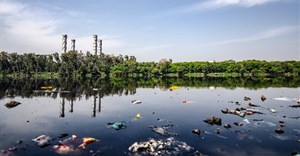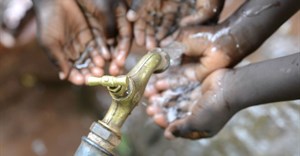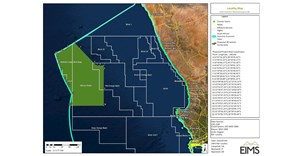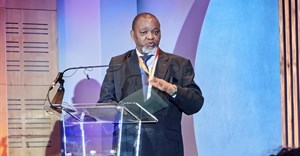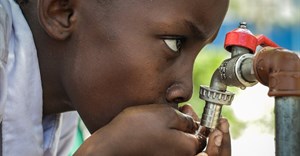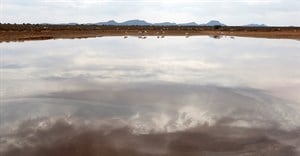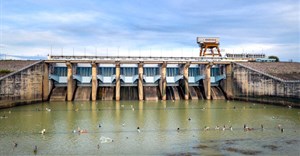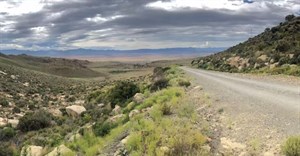Fracking in SA - A research update from the WRC
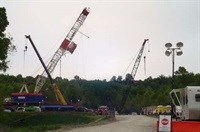
Unconventional gas exploration and development has become increasingly important from an energy source perspective. The related consequences associated with the development of these resources have attracted worldwide attention.
South Africa is in a unique position to develop its unconventional gas reserves in a manner that are responsible and sustainable - through research, good regulation and partnership. Unconventional gas exploration and development offers the country a unique opportunity to create a new paradigm in resource development throughout the lifecycle that not only ensure economic security but also environmental and social security. In South Africa, the main unconventional gas sources are shale gas and coal-bed methane. If the estimated volumes of these resources are proven, South Africa will host the fifth-largest gas reserves after China, the US, Argentina and
Mexico.
South Africa has the potential to become a major player in the world shale gas market. However, a number of environmental concerns have been raised, among others, on the exploitation of these resources. Some of the best shale gas potential may lie in some of South Africa's more environmentally sensitive and water-scarce areas, such as the Karoo basin.
The general environmental concerns and the implications for water resources, in particular, are potentially very serious. There are, for example, the concerns associated with contamination and depletion of aquifers, and dealing with the wastes that are produced during the fracking
process. Further concerns stem from the actual industrial process of mining in environmentally sensitive environments - new roads, heavy transportation, dust and vibration issues for sensitive scientific instruments such as large telescopes. There is thus a need to allow science to inform some of the policies and regulations around these activities.
Current status of fracking research in South Africa
There have been various (and often highly polarised) discussions between pro- and anti-fracking groups. Shale gas is getting most of the airtime, while there are significant advances being made in terms of coal-bed methane, as some companies are evaluating the available resources through pilot plants.
In terms of privately-funded scientific research, one industry group is currently being funded by Shell, namely the Karoo Groundwater Expert Group (KGEG). This group is collating baseline information and creating information on groundwater conditions within the Karoo. The KGEG has indicated that they would be willing to share some of their reports, data and information with a wider stakeholder
group.
With regards to public-funded research, there is the DWA steering committee, which is support by a task team and a working group on shale gas. The Department of Mineral Resources also has a task team which has produced several reports. In addition, the Petroleum Agency of South Africa has been quite active in developing draft regulations.
In 2012, the WRC produced a first-of-its-kind document for South Africa entitled State-of-the-art: Fracking for shale gas exploration in South Africa and the impact on water resources (WRC Report No. KV 294/11). A briefing note on the outcomes of this report was sent to the Minister early last year. The report points to several concerns regarding the impacts of hydraulic fracturing on the environment, and makes several recommendations in this regard.
Two on-going projects being funded by the WRC are set to deepen knowledge further on the subject of unconventional gas mining. The first project, which started in 2012, is aimed at developing an interactive vulnerability map and preliminary screening level monitoring protocol to assess the potential environmental impact of hydraulic fracturing. This project is focusing on a wide array of biophysical and socio-economic aspects for the whole unconventional mining process from exploration through to post-mining phase. The ultimate objective is to provide recommendations as to which areas are vulnerable to such mining in South Africa, and how hydraulic fracturing activities should be monitored. The project will be completed next year.
In turn, the second WRC-funded project, which kicked off this year, is characterising the chemical composition of deep and shallow groundwater in an area considered for shale-gas exploration in the Main Karoo basin. A primary concern of regarding shale gas development is that deep borehole drilling and the hydraulic fracturing process may create conduits for deep-seated groundwaters to rapidly migrate to the shallow aquifers. At this stage very little is known about the composition of the deeper Karoo waters and its connectivity to the shallow aquifers, and this project aims primarily to better our knowledge of these reservoirs.
As part of the project a list of determinands will be developed that should be analysed for regulatory purposes in both shallow and deep boreholes in future shale gas exploration and development areas. This project will be completed in 2015. Further Ministerial Briefs will be drafted once the results of these projects are known.
In addition, the WRC has, through its Directed Call, solicited proposals for a study on unconventional gas exploration and mining and its impacts on South Africa's water resources to be undertaken between 2014 and 2016. The main objectives of this study are, among others, to update the 2012 WRC fracking report to include all unconventional gas sources; to undertake a gap-analysis of the technical, policy, and regulatory requirements related to unconventional gas mining; to perform a risk-based assessment of selected aquifers, recharge areas and surface water bodies to enable adequate protection of these systems; develop best practice guidelines and regulatory responses based on several potential scenarios and to develop a best practice framework in a manner that accounts for the technical and socio-economic
considerations of unconventional gas mining.
WRC Dialogues
The WRC Dialogues are a series of platforms enabling partners from all spheres of the water sector, including academia, government (all levels), civil society and industry, to come together to share their understanding and experiences of the challenges and problems, in order to build a stronger foundation for developing the solutions and interventions toward a better water scenario for South Africa and its development. Through these dialogues, the issue of unconventional gas is directed towards a more scientific discussion. The WRC Dialogue on fracking, held on 3 June 2013, brought several stakeholder groups together and aimed to build a framework for cooperation.
A second Dialogue took place on 17 September 2013, as part of the Groundwater Division Conference in Durban, and aimed aimed to steer the issue of unconventional gas towards a more scientific discussion. We urge the DWA to send representatives to attend this Dialogue.
It is envisaged that, over time, the WRC Dialogues will mainly involve issues that are based on actual unconventional gas developments in South Africa. In addition, the Commission is in the process of developing a science plan with the relevant institutions to improve the country's overall knowledge, and to build the required capacity South Africa will require to protect its water and land resources while allowing economic development to continue for the benefit of all citizens.







